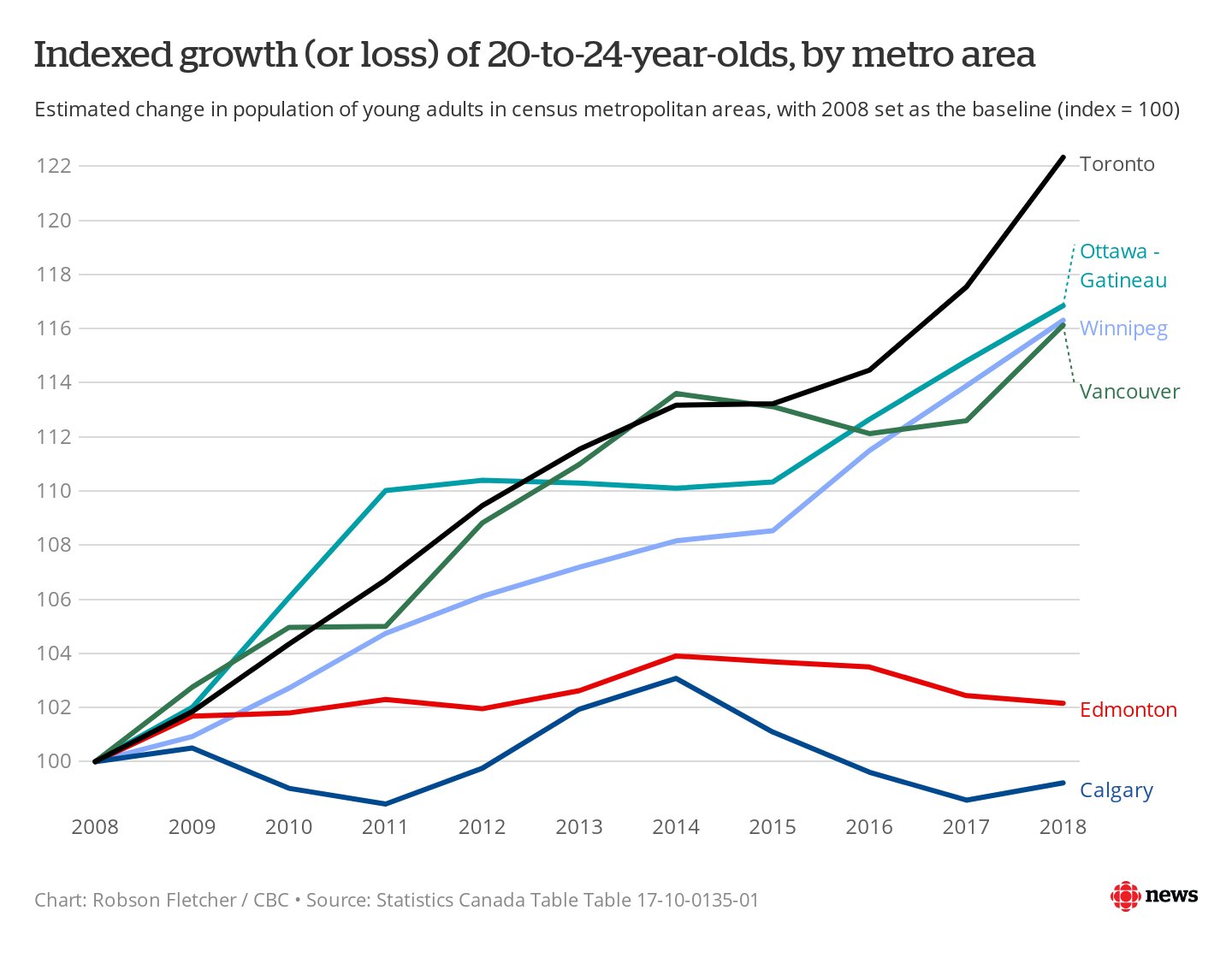Always_Biking
Senior Member
I recall this has come up before. I'm sure everyone has a take on the reasons behind it.


People have been reading too much into this - although I completely agree with the sentiment on this site and others to the reasons why.People have raised good points in this thread, but I can’t help but wonder if people are reading too much into this. It’s one very specific demographic that also happens to be the age of post secondary students. Everyone knows Calgary has a low percentage of post secondary spots compared to other cities. It’s also worth noting the next demographic up 24-35 has shown big increases. I’d like to see the increases on that demographic in the other cities shown above. I’ve known many who have gone to school in other cities and come back.
The 20-24 demographic is important but does not make a city, and I would argue the next demographic up is actually far more important.
That said we still need to make Calgary more desirable for the 20-24. As social justice mentioned we have done things going for us, and yeah we have to move past the mentality that making lots of money is all that matters.
I love the article and the attention it brought. But it's hardly a new issue and the bewildered look of people realizing young people don't always stay here is proof on how blind some have been to this decades long issue. It's not too late but there needs to be a concerted effort. Perhaps a young adult coalition?
It's not an new issue, but it's becoming increasingly important as Calgary shifts to a diversified economy. We can't necessarily compete like we used to on ultra high salaries to drag people here who would rather not move to the city. We need to attract people to come to the city when they are at their most mobile - i.e. when they are about to attend university. The city's reputation is toxic, but the city itself is actually much nicer than people initially realize. There's a reason it's now beating out Toronto and Vancouver in livability rankings. If we could draw in (or retain) more young people to our universities, it's pretty easy to develop a liking for the city. People get involved with things while they're at university and they end up sticking around. I mean, that woman in the article talked about how much she likes Hamilton....HAMILTON!! If someone can go to McMaster and end up liking Hamilton, you can easily like Calgary.
Provincially we still haven't admitted that the future is an urban one and that attracting young people to cities is part of the winning strategy.
One thing i want to add is these "route ahead" articles are perpetuating this regressive, doom and gloom stereotype of Calgary. Every opinion in this article is presented as matter of fact and there is no attempt to provide a different perspective. Like that quote from that McMaster student about Hamilton having more culture than Calgary made me want to throw up. Why not get a comment from the hundreds of millennials involved in Sled Island, Arts Commons, Folk Fest, Pride ext ext. to help present some balance?I recall this has come up before. I'm sure everyone has a take on the reasons behind it.
One thing i want to add is these "route ahead" articles are perpetuating this regressive, doom and gloom stereotype of Calgary. Every opinion in this article is presented as matter of fact and there is no attempt to provide a different perspective. Like that quote from that McMaster student about Hamilton having more culture than Calgary made me want to throw up. Why not get a comment from the hundreds of millennials involved in Sled Island, Arts Commons, Folk Fest, Pride ext ext. to help present some balance?




